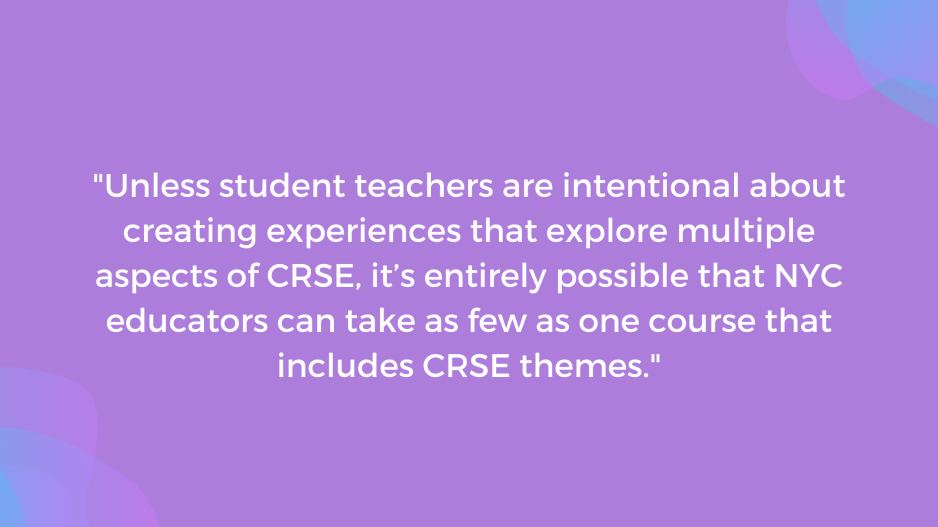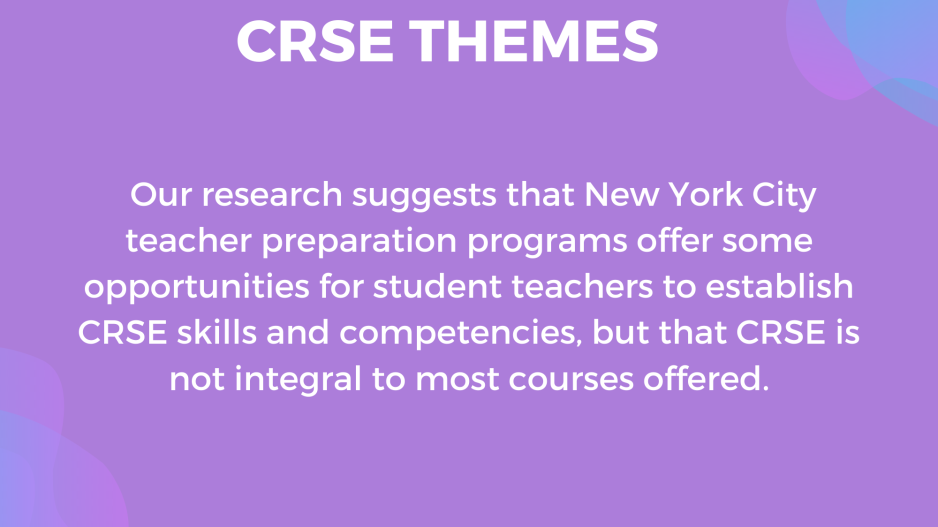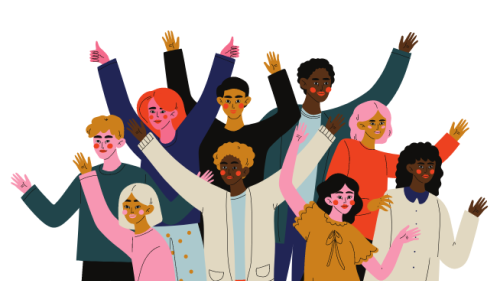By Leah Q. Peoples, Ph.D. and Sneha Bolisetty, MA
The interest in culturally responsive, equitable, and anti-racist teaching has grown over the last few years. More and more educators are committing themselves to fostering classrooms where students, in particular Black, Indigenous, Latinx, Asian and other marginalized students, are entering spaces that nurture, honor, and deepen their genius. An essential component of creating equitable classrooms is culturally responsive and sustaining (CRSE) teaching practices. Empirical studies find that teachers who center students’ culture in the classroom by promoting high expectations, cultural competence, and critical consciousness improve student academic achievement, capacity for critical thinking, empowered racial/ethnic identity, civic activism, and overall school experience (Arsonson & Laughter, 2016; Martell, 2013; Aldana et al, 2012; Thomas, Davidson, & McAdoo, 2008; Byrd, 2016). CRSE practices directly address the roots of educational inequities that have plagued education for decades.
![Culturally responsive-sustaining education is [a] cultural view of learning and human development in which multiple forms of diversity (e.g., race, social class, gender, language, sexual orientation, nationality, religion, ability) are recognized, understood, and regarded as indispensable sources of knowledge for rigorous teaching and learning](/sites/default/files/styles/media_image/public/2021-09/CREdef.png?h=8abcec71&itok=s5GdRWtw)
Meaningful CRSE implementation requires educators to engage skills such as cultural competence, humility, a dedication to life-long learning, sociopolitical consciousness, a critical reflexive practice, and the ability to center joy alongside critical conversations about society and institutions. In 2018, the Education Justice Research and Organizing Collaborative (EJ-ROC) explored opportunities that New York City educators had to establish a skilled CRSE pedagogy during their teacher education program. Since teacher-education programs provide a foundation for educators and shape the curriculum, pedagogy, classroom environment, and relationships that students will experience, it’s an excellent topic of study to investigate one avenue of training and support for NYC teachers.
The research team investigated the extent to which initial education certificate (the certification to teach in New York) course offerings provided opportunities for teachers to develop CRSE mindsets, skills, and practices. The researchers collected and analyzed course descriptions from the top 10 colleges and universities that awarded education certificates to New York City teachers in the years until 2015-16. These institutions include: Adelphi University, Brooklyn College, City College, Hunter College, Lehman College, Long Island University, New York University, Queens College, Columbia University, and Touro College. Course descriptions were analyzed using a framework comprised of five essential themes found in CRSE literature and practices: (a) cultural background, (b) relevancy, (c) sociopolitical consciousness, (d) critical action, and (e) student dignity. Figure 1 provides operational definitions for each theme of CRSE. This research resulted in three key findings.
| Cultural Background | refers to course descriptions that directly connect teaching and learning to students' cultural backgrounds (such as race, language, home cultural values, etc) |
| Relevancy | refers to course descriptions that directly connect teaching and learning to students' prior knowledge and experience from their home and community to meaningfully engage students for high academic achievement |
| Sociopolitical Consciousness | refers to course descriptions that directly connect teaching and learning to understanding how identity and culture interact with social and political institutions |
| Student Dignity | refers to course descriptions that directly connect teaching and learning to students' whole beings that are dynamic, multidimensional, in need of support, care, love, understanding, and grace |
| Critical Action | refers to course descriptions that directly connect teaching and learning to action, social change, and social justice. Additionally, these are courses that promote the ethos of democratic principles and steer future teachers to contribute to actionable outcomes |

Finding #1: CRSE themes were identified in less than 21% of all Elementary Education and Bilingual/TESOL course descriptions.
Our research examined course descriptions for teacher preparation programs at 10 colleges and universities in New York City. Of those programs, we analyzed multiple educational programs like Arts Education, Social Studies Education, Special Education and more. When controlling for the six Elementary Education programs and seven Bilingual or TESOL programs only, data revealed that just under 21% of all course descriptions included elements of CRSE themes. Additionally, most education programs provide students with multiple options to satisfy graduation and certification requirements, and only some of those options include courses with CRSE elements. This suggests that unless student teachers are intentional about creating experiences that explore multiple aspects of CRSE, it’s entirely possible that NYC educators can take as few as one course that includes CRSE themes.
Finding # 2: Student Dignity and Critical Action were the least common themes of CRSE represented in the course descriptions.
Of the 359 course descriptions that contained an element of one or more of the CRSE themes, Student Dignity and Critical Action were the least represented themes of CRSE. Collectively, only 14% of course descriptions offered in teacher preparation programs explicitly addressed connecting teaching and learning to action, social change, multidimensionalism of students and extending love, and understanding and grace to students of various cultural backgrounds. The vast majority of course descriptions classified as containing elements of CRSE were representative of Cultural Background and Sociopolitical Consciousness themes of CRSE. That is just over 75% of all course descriptions with CRSE elements addressed students’ diversity, communities, and culture within institutional and societal context.
| CRSE Theme | Number of Course Descriptions | Percent of CRSE Themes |
| Cultural Background | 161 | 46% |
| Sociopolitical Consciousness | 92 | 26% |
| Relevancy | 45 | 13% |
| Critical Action | 29 | 8% |
| Student Dignity | 22 | 6% |
| Total | 349 | 100% |
Finding #3: Our research uncovered excellent illustrative examples of incorporating CRSE themes into course descriptions.
One of the most cited challenges with implementing CRSE in practices, policies, curriculum or other educational spaces is not having exemplary examples of what it could or should look like. However, we found multiple examples that display an excellent shift towards incorporating CRSE themes into teacher preparation courses. For example, City College explicitly states in course descriptions that student-teachers will “build on [students’] local funds of knowledge” and “operate from non-deficit models.” Adelphi University states “paradigms of knowledge... will be critically examined, including... critical theory, feminine, and indigenous ways of knowing,” and Long Island University course descriptions include explorations of “alternate ways of knowing”. Columbia University prepares teachers “to draw upon community and family assets and consciously build a capacity approach to working in low-income neighborhoods.” Lehman College trains art teacher candidates to see “the appreciation of art in family, neighborhood, and school settings”.

The Main Point
While course descriptions do not indicate exactly what student teachers learn in classes in the ways that syllabi or classroom observations would, they do illuminate to some extent how explicitly and directly CRSE is represented in course goals via the description. Our research suggests that New York City teacher preparation programs offer some opportunities for student teachers to establish CRSE skills and competencies, but that CRSE is not integral to most courses offered. Gloria Ladson-Billings and numerous other scholars and practitioners warn us that CRSE cannot simply be sprinkled into existing practices and frameworks around teaching and learning. CRSE should be integrated throughout practices and frameworks reimagined with a CRSE lens. Educators (and youth, parents and families, and organizers) who are committed to CRSE practices should push teacher preparation programs to better prepare educators to implement CRSE. Some examples of this include integrating CRSE specific coursework into program requirements and partnering with CRSE practitioners and schools for student teaching placements. More institutional support is needed to prepare CRSE educators at the start of their careers when they are building the foundations of their professional practice. As found in this study, students and graduates of teacher preparation programs are not receiving adequate coursework for all five themes of CRSE. We recommend that the NYC Department of Education provide explicit CRSE continuing credit opportunities for pre-service and experienced teachers including all five theme areas. We additionally recommend that the NY State Education Department require CRSE training and practical experience for teacher certification, which should be reflected in student coursework and field placements.
Do you have recommended CRSE-related trainings, professional development, or resources for student teachers? Share them using the hashtag #CRSEGrowthOpportunity!
For more information about EJ-ROC, please visit our website.
Visit the CRE Hub for curated resources for organizers, researchers, youth, and educators interested in culturally responsive and sustaining education.
CRE Hub
References
Aldana, A., Rowley, S. J., Checkoway, B., Richards-Schuster, K. (2012). Raising ethnic-racial consciousness: The relationship between intergroup dialogues and adolescents’ ethnic-racial identity and racism awareness. Equity & Excellence in Education, 45, 120-137.
Aronson, B., & Laughter, J.C. (2016) “The Theory and Practice of Culturally Relevant Education: A Synthesis of Research Across Content Areas.” Review of Educational Research 86(1), 163–206.
Byrd, Christy M. (2016) “Does Culturally Relevant Teaching Work? An Examination From Student Perspectives.” SAGE Open.
Martell, C. C. (2013). Race and histories: Examining culturally relevant teaching in the U.S. history classroom. Theory & Research in Social Education, 41, 65-88
Milner IV, H. R. (2010). What does teacher education have to do with teaching? Implications for diversity studies. Journal of Teacher Education, 61(1-2), 118-131.
Sparks, S.D. (2020, November 17). Training bias out of teachers: Little promise so far. EducationWeek. https://www.edweek.org/leadership/training-bias-out-of-teachers-research-shows-little-promise-so-far/2020/11
Thomas, O., Davidson, W., McAdoo, H. (2008). An evaluation study of the Young Empowered Sisters (YES!) Program: Promoting cultural assets among African American adolescent girls through a culturally relevant school-based intervention. Journal of Black Psychology, 34, 281-308.

